This section is for paid subscribers only. Our subscription is only $3700/- for one full year.
You get unlimited access to all paid section and features on the website with this subscription.
Subscribe to read full article
This section is for paid subscribers only. Our subscription is only $37/- for one full year.
You get unlimited access to all paid section and features on the website with this subscription.
Not ready for a full subscription?
You can access this article for $2, and have it saved to your account for one year.
- Release Date27/10/1945
- FormatB-W
- LanguageHindi
'Bichhwa Raniki Busti' was a community of achhoots or keptaways , ruled over by Rani Bichhwa, the Queen Mother. Her people were players of God dancers, singers and performers. Every morning they performed acts in the courtyard of the Great Temple, and whatever coins the watching people gave them, they put together and gave to the Temple. Holy sweets were distributed and then only would they eat such food as the people had given them after their performance. If someday they were late and the temple doors were closed for 'God's Rest,' the players of God would miss a meal.
Lakha was their Princess, soon due to be the Rani Ma or Queen Mother of the tribe. She and her brother were the pride and hope of their mother, Rani Bichhwa. Lachhman was a true straight blade, loyal to his folks, his Queen Mother and his God. Lakha too was a worthy daughter of her mother until love visited her.
Love came to Lakha in the shape of a stranger, a young man of the powerful clan of the Godless. In a brush with her people (the Wild Tribe of Simple Believers as the disbelievers called Lakha's folks) this young man noticed the spirited girl. Again he saw her at the temple, and picking her up he took her to the palace and let his father the Maharaja see her. The young man himself was Rajkumar, the prince and their apparent. At this King's court, Lakha was treated as a barbarian but she returned to the temple just in time to save her people from another hungry day.
The Rajkumar was however persistent; he wooed Lakha in the disguise of a fisherman, and she was finding his words sweet. But Lakha was to be Queen, her stern mother had made it plain that a queen must not play or love for herself. Yet Lakha had secretly met the young fisherman and their love was mockingly proclaimed to Rani Bichhwa's Busti by the Court Dancers of the Godless. When the Rani found her daughter secretly playing love with an unknown man, she was furious. On the very day of Lakha's investiture, Bichhwa denounced Lakha as a sinner, deposed her and drove her out of her queendom.
Lakha went to the Great Temple to ask protection of God. She was helpless and with nowhere to go. God, if there was one, was cruel- so mocked her young lover. Her resistance broke down and she consented to be led by the Rajkumar to the palace. Her faith in God was lost. At the Palace she had to take the vow of Godlessness before her royal father-in-law would consent to accept her.
Lakha had achieved a husband but lost her mother, brothers, tribe, world and faith. She tried to send them lavish gifts of food and wealth but her folks and the Queen Mother scornfully rejected the offerings. Yet the players were suffering. Their star player had deserted them and now their acts in the Great Temple courtyard drew no crowds. Little money was collected and even less food day to day.
The tired but lion-hearted Queen Mother made a great effort; she said she would play in Lakha's place. But alas, her magnificent spirit was betrayed by her aging flesh, Bichhwa's hands shook under the strain of shooting an arrow even to miss Lachhman, her boy; Lakha used to shoot so unerringly in that act which always drew a crowd. But today's crowd was disappointed and showered no favours on the poor and troubled players to whom it meant just another day of hunger. Now their simple faith in God began to waver in spite of the exhortations of their Queen Mother.
At the Palace the Court Dancer was describing Rani Bichhwa's plight with much malicious pleasure, but Lakha, now Rajbahu, or Royal daughter-in-law, overheard the wicked words and thrashed the dancing girl. Just then rushed in Lachhman.
In complete unconcern of the own life, the brother told his sister what she had done to her people. She had married a prince and left her own folks heirs to starvation. After his words Lakha could stand the palace life no-more. She threw away her find clothes and started for the temple with her brother. But the Rajkumar would not give up a wife (and a convert to the Godless Faith) so easily. He rushed to the temple after Lakha and Lachhman. At the temple, Bichhwa poured scorn on her daughter but Lakha was determined to be with her god and her people. When the Rajkumar followed her, she threatened to kill him.
Faith was pitted against force. On the one hand was helpless but resurgent faith, on the other, power to destroy, to command and to possess. Yet faith won the day. They still tell you at the Great Temple, how in that supreme moment of Lakha's life, the Gods took human forms and came to her rescue. The prince was subdued and the priests were enlightened; they said "Gods' home is open to all whose homes are open to Gods" and threw open the gates of the temple not only to the humble keptaways but also to the Godless if they wanted to come.
(From the official press booklets)
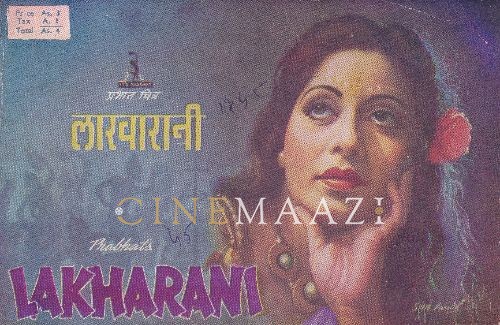
Cast
-
Durga Khote
Bichhwa -
Monica Desai
Lakha -
Azurie
Nartaki -
Sapru
Rajkumar -
Butt Kashar
Surandar -
Ganpatrao
Maharaj -
Gouri
Ravi -
Karadkar
Moulu -
Guru Dutt
Lachhaman -
Ramsingh
Pujari
Crew
-
BannerPrabhat Film Co., Poona
-
Director
-
Music Director
-
Lyricist
-
Story Writer
-
Screenplay
-
Dialogues
-
Cinematography
-
Editing
-
Sound Recording/ Audiography
-
Choreography
-
Music CompanyH M V
-
Art Direction





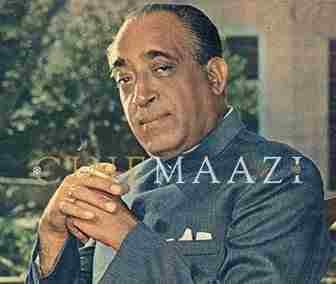
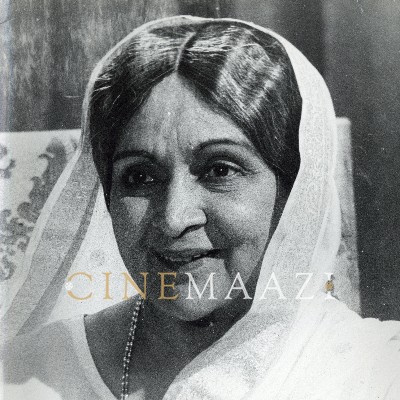

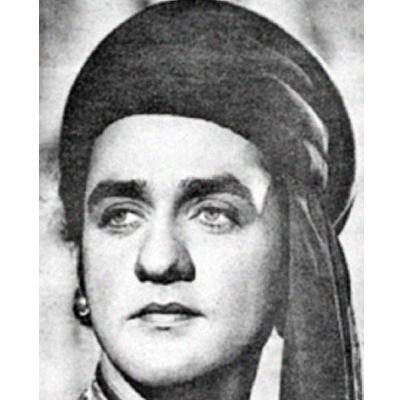
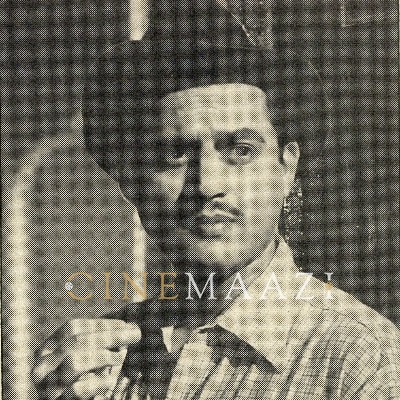
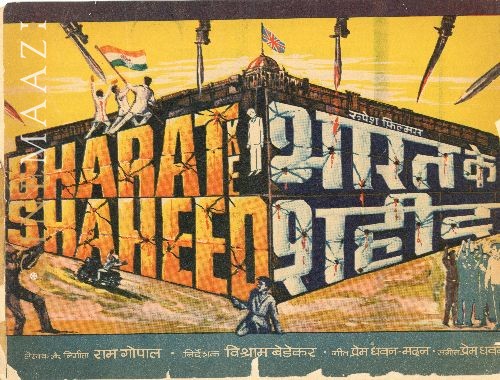
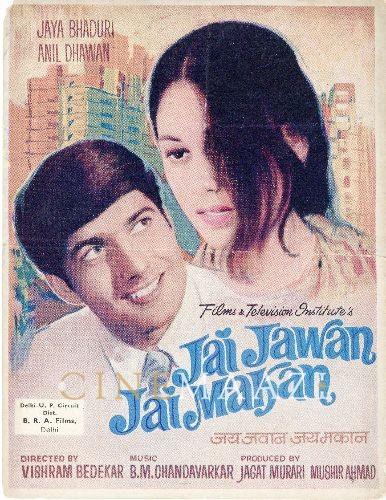

.jpg)



